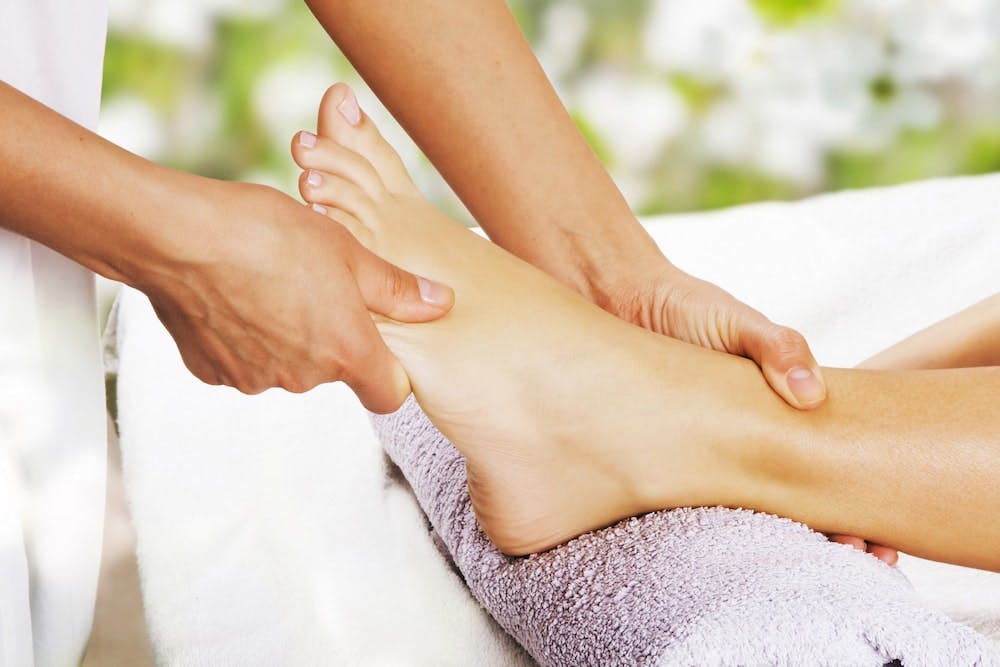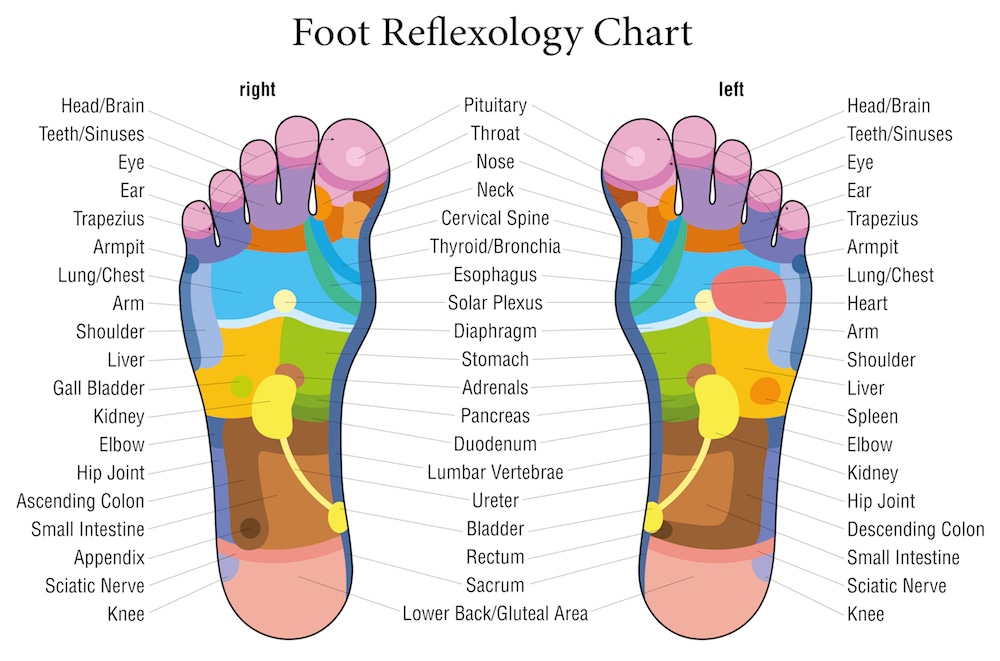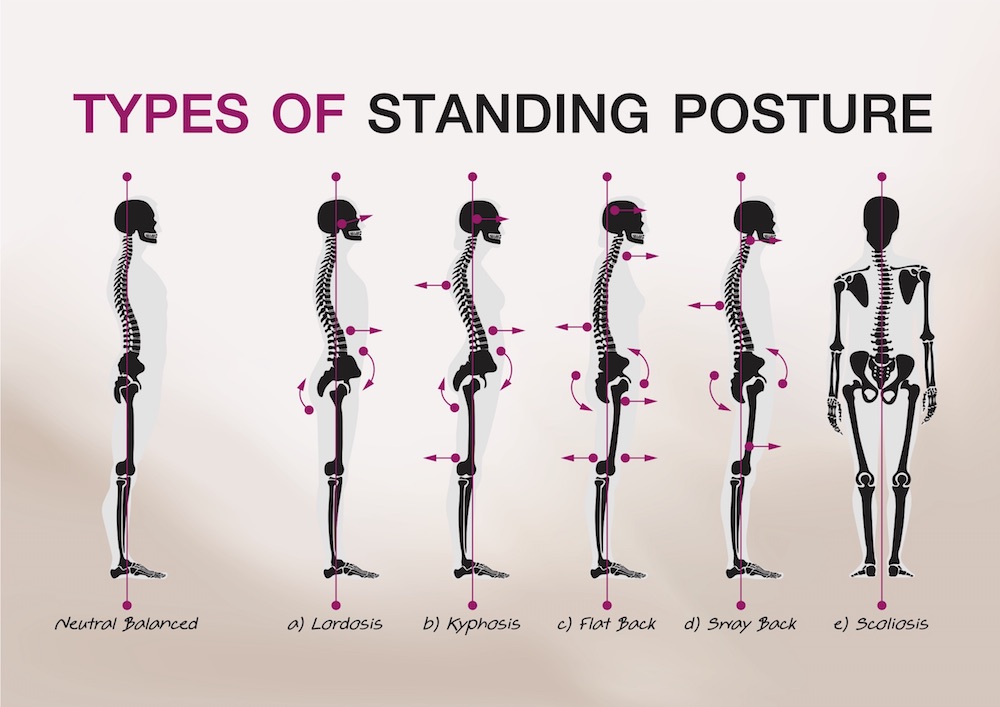
From stress reduction to relaxation, this holistic therapy can do wonders for the mind, body and sole
Seeing the foot as a road map to the body may seem strange, but think how a pain in your hip can adjust your gait, how a bad back may affect your walking, and how your poor feet take the full brunt of your daily struggles. Reflexology isn’t just about giving the foot a quick rub to soothe those tired toes, but a treatment that sees various points on the foot connected to places on the body through the nervous system. By applying pressure to those areas, a therapist can target where you’re having issues, and look to alleviate them.

Reflexology has been practised for thousands of years, but pinning down the exact origin is a bit of a mystery. According to health historians, the therapy has been practised in China since 4,000BC, and some ancient Egyptian tombs have images of the therapy detailed on their walls. The term stems from the idea of a ‘reflex’ action: something done unconsciously in response to a stimulus. An example would be that of a knee-jerk reaction, where the lower leg will kick out involuntarily when the knee is hit sharply. The idea here is that the stimulus of rubbing the foot in certain places causes a reaction elsewhere in the body. Regardless of where it started, reflexology has stood the test of time.
So how does reflexology actually work? It’s all to do with your nerve endings, and since you have more than 7,000 in each foot it’s no wonder stepping on a plug hurts so much! Reflexologists divide the body up into 10 zones, and believe that nerves from these zones all travel down to the feet. While it’s difficult to find scientific evidence to prove the healing effects of therapy, there are multiple theories as to why reflexology is effective and beneficial.
The central nervous system
Neurologist Sir Henry Head and Nobel Prize winner Sir Charles Sherrington’s research from the 1890s argued that there is a relationship between the skin and internal organs. They believed that through applying pressure to the feet, hands, or even the tongue, the brain receives a calming message and the central nervous system reacts by reducing tension in the body. This allows organs to operate more efficiently and promotes that overall relaxed, healthy feeling.

Body posture
With all those nerves in your feet, some people argue that pressure on your soles and toes sends signals to the brain to adjust your posture. It may be tiny movements you make, but better alignment of your skeleton means your organs will sit properly for optimal functioning. If your organs are working at their best, you’re less likely to have those aches and pains from joints taking extra strain, and your overall health will improve - whether it’s due to opening up your lungs and getting some extra oxygen in your blood, or not slouching in order to help your digestion.
The placebo effect
The timeless idea of being told something will work and help you, and your own belief making it so, has been around for years. Even if it’s primarily psychological, placebo effects can actually help improve some physical problems.
If you believe rubbing a point on the foot will help with your headache, you may become less stressed and, therefore, your body could sort itself out accordingly. As long as the therapy – even if it’s just the idea of therapy – is helping you, that’s all that matters.
Even if it’s primarily psychological, placebo effects can actually help improve some physical problems
A lot of people book reflexology sessions to help reduce stress, improve relaxation, reduce specific pain in the body, and enhance their overall wellbeing.
Each session is tailored to your specific needs by having a thorough discussion with your therapist before your session, so they can address that pain in your shoulder by working the area outside your little toe, or help with your tummy troubles by focusing on the arch.
Reflexology and pregnancy
As well as targeting areas of the body, the overall relaxing nature of the experience is often extremely beneficial for mothers-to-be. The holistic nature of the treatment means that balancing the body can help reduce anxiety, which in turn helps regulate blood pressure, as well as looking to reduce any specific pain as the baby grows. While delighted to hear that your brood may be growing, therapists will advise to wait until after the first few months of pregnancy to continue sessions.
Although reflexology is all about balance, and entirely non-invasive, those first few months are a delicate time in pregnancy, and so it may be best to avoid any alternative treatments at that time, more for peace of mind than anything else.
A lot of people book reflexology sessions to help reduce stress, improve relaxation, reduce specific pain in the body, and enhance their overall wellbeing
Jumping in feet first?
With countless therapies available, how do you know if reflexology is right for you? One thing that might attract (or repel) you is the fact that the therapist only needs to touch your feet. Some people may feel uncomfortable undressing for a massage, but just taking your socks off isn’t quite so intimate. For others, the exposed foot can bring up feelings of self-consciousness, from the fear of smell after a long day enclosed in shoes, or the thought of rough skin, or funny-shaped toes, or maybe you’re just very ticklish. If you have reservations about getting your little piggies out for a stranger, just remember: this is a trained professional who specialises in working with feet. They have seen thousands of feet before, and they haven’t been put off yet.
If you decide to give reflexology a go, make sure you do your research and find a certified professional in your area (Therapy Directory can be a goldmine for this). Beforehand, think about what you want to get out of the session so that your therapist can make it the most beneficial experience possible. Whether you have a specific issue you want to target, or want to promote overall wellbeing, reflexology can be a great step in the right direction.

